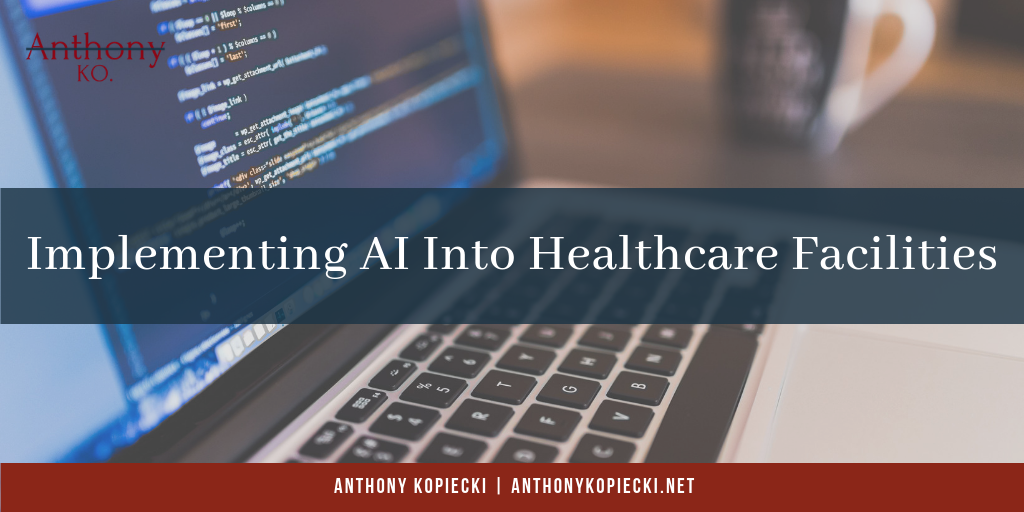Artificial Intelligence is a hot button topic right now across many industries. In healthcare, facilities and CEOs are using AI to help improve the patient experience and overall outcomes. Here are a few ways we can better implement AI into everyday healthcare practices.
Assisted Surgery: Robotic assistants like Da Vinci and Heartlander, help doctors complete tough procedures with better precision. Overall “Cognitive surgical robotics combines information from actual surgical experiences to improve surgical techniques,” according to Venture Beat. The Da Vinci device has robotic limbs that the surgeon operates from a console; using HD, magnified, and 3D views of the surgical area surgeons are better equipped to complete surgeries in difficult spaces with better maneuverability and decreased risk.
Nursing Assistants: Virtual nursing assistants have a direct connection to telemedicine by improving patient outcomes and communication, all while reducing the amount of unnecessary visits to the hospital. AI powered virtual nursing assistants gives patients access to information, 24/7 monitoring capabilities, and answers for basic medical related questions. We’ve seen this technology begin to proliferate the app market, in the form of programs such as Sensely and Angel.
Workflow: It has been estimated that automating administrative tasks could create about $18 billion in savings for the industry. So far automation has been beneficial in saving healthcare providers time by helping with voice-to-text transcriptions, medication prescribing, and ordering tests. Facilities like the Cleveland Clinic and John Hopkins have partnered with tech companies to help improve administrative tasks. By partnering with IBM the Cleveland Clinic is able to use “Watson and other advanced technologies to mine big data and help physicians provide a more personalized and efficient treatment experience.”
Image Analysis: Artificial Intelligence can help cut down time spent evaluating MRI scans, X-rays, and other medical image results. Researchers at MIT developed an algorithm that has the ability to analyze “brain scans and other 3-D images more than 1,000 times more quickly using novel learning techniques.” This dramatically reduces the time spent on image analysis from over two hours, to within a few minutes.
There’s no doubt that AI is a complex subject. It has numerous applications, including the ones I’ve listed above, and also comes with many new and as yet unknown challenges. However, its adoption into health care is unquestionable, and holds many potential benefits for both doctors and patients.
